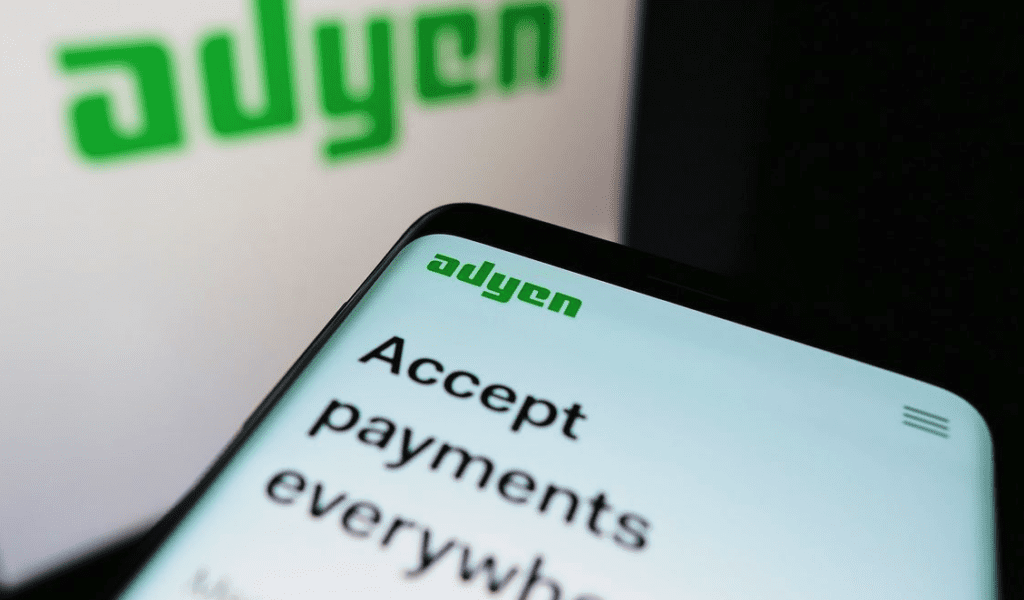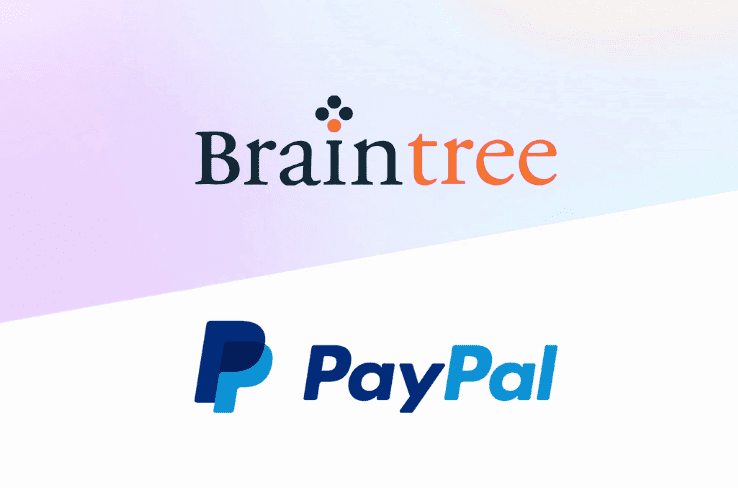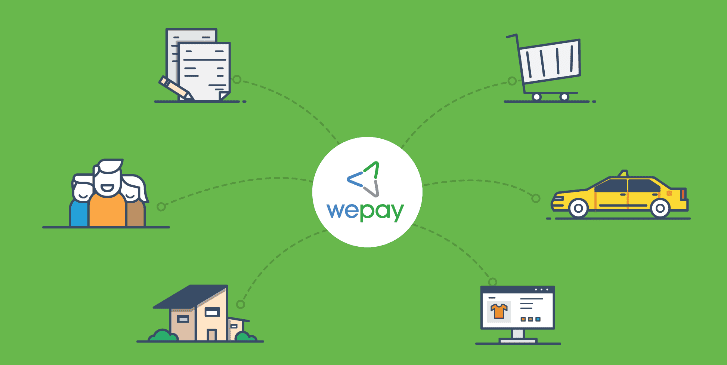Has Stripe’s payment processing solution left you wondering if there’s a more suitable alternative for your business? You’re not alone. As the eCommerce landscape evolves, businesses are on the lookout for payment processors tailored to their unique needs. In this comprehensive guide, we’ll explore the top 10 Stripe competitors and provide insights to help you choose the right solution for your business.
Key Takeaways
Understand Stripe’s pros and cons to determine if it is the right payment processor for your business.
Consider factors such as costs, features, support, fees and types of transactions when choosing a Stripe competitor.
Examine 10 top alternatives including PayPal, Square & Adyen plus 3 industry specific options like Clover & PaymentCloud.
Understanding Stripe: Pros and Cons
Stripe is a popular credit card processing service designed for small businesses. It offers a highly flexible eCommerce payments solution, boasting comprehensive developer resources, clear pricing, and the ability to handle recurring payments. However, a thorough understanding of its features and limitations is necessary to determine if it is the optimal choice for your business.
Stripe’s primary benefit is its scalability, ease of implementation, and ability to partner with a variety of e-commerce applications, while offering competitive credit card processing fees. Its standard pricing is 2.9% plus 30 cents per successful card charge. There is no monthly fee, but additional fees may apply for recurring billing, invoicing, and other special tools such as a custom domain for Stripe Checkout.
On the flip side, Stripe has its drawbacks. Some of these include:
Configuring it can be challenging
There’s no integrated shopping cart or telephone support
Some of Stripe’s advanced features come at an additional cost
It may not integrate seamlessly with all accounting software
These limitations may lead some businesses to consider an alternative to Stripe.
A clear grasp of these strengths and weaknesses will aid businesses in making an informed choice about whether Stripe meets their specific needs, or if they should consider an alternative.
Stripe’s Key Metrics
Annual Revenue
| Financial Year | Revenue |
|---|---|
| 2014 | $40 million |
| 2016 | $450 million |
| 2017 | $1 billion |
| 2018 | $1.5 billion |
| 2019 | $2 billion |
| 2020 | $7.4 billion |
| 2021 | $12 billion |
| 2022 | $14 billion |
Stripes Funding
| Date, Funding Type | Money Raised |
|---|---|
| March 2011, Seed round | $2 million |
| February 2012, Series A | $18 million |
| July 2012, Series B | $20 million |
| January 2014, Series C | $80 million |
| December 2014, Series C | $70 million |
| July 2015, Series C | $100 million |
| November 2016, Series D | $150 million |
| September 2018, Series E | $245 million |
| January 2019, Series F | $100 million |
| September 2019, Series G | $250 million |
| April 2020, Series G Extension | $600 million |
| March 14, Series H | $600 million |
Key Factors to Consider When Choosing a Stripe Competitor
When evaluating a Stripe competitor, there are several factors to consider. For instance, you should weigh the costs, features, and support offered by each payment gateway. Also, consider the payment processing fees associated with each competitor, as they can vary significantly and impact your bottom line.
You must examine the types of transactions each payment processor can accommodate, including online, in-person, and international payments. As different payment processors cater to specific business types and sizes, it’s vital to understand each competitor’s target market when selecting the most suitable option for your business.
To help you navigate through the plethora of options, we’ve compiled a comprehensive comparison of the top 10 Stripe competitors, highlighting their key features, pricing, and target markets.
Related Article: Explore The Best Artificial Intelligence Stocks Under $10
Top 10 Stripe Competitors: A Comprehensive Comparison
We will now examine our top 10 list of the best Stripe alternatives, focusing on their unique selling points, strengths, and weaknesses.
This comprehensive comparison will help you make an informed decision about which payment processor is best suited for your business needs.
Related Article: Exploring The Top NVIDIA Competitors In 2023
1. PayPal: A Well-Established Payment Processor

PayPal is a well-established payment processor with the following features:
Simple payment gateway
Similar fees to Stripe
Free mobile app
Highly user-friendly for both customers and merchants
Global coverage
Accepts all types of payments
Integrates quickly into merchant websites, social media, or online stores
However, it is important to note that PayPal has a higher frequency of customer complaints regarding held funds compared to Stripe.
PayPal is an excellent fit for both online and physical stores that aim to broaden their payment options beyond other credit card processors. Its secure payment gateway supports major credit cards, Apple Pay, and more, making it a versatile option for businesses that want to accept international payments and local payment methods.
Although PayPal and Stripe have similar fees, PayPal’s straightforward payment interface and complimentary mobile application make it an attractive alternative for businesses that prioritize simplicity and ease of use.
In summary, PayPal is a great choice for businesses that want a well-established payment processor with a simple payment gateway and the ability to accept a wide range of payment methods, both online and in-person.
2. Square: The All-In-One Solution for Small Businesses

Square is an all-in-one solution for small businesses, offering:
Live sales and inventory tracking
Multiple payment forms
In-depth reporting
While it’s simpler to set up for the average user, it lacks Stripe’s global reach and support, as well as certain eCommerce-specific features.
One of the significant advantages of utilizing Square over Stripe is its extensive documentation and APIs, which enable businesses to:
Create a system that can manage online and in-person sales
Generate reports
Manage inventory
And more
This negates the need for third-party add-ons to manage inventory, customer engagement, and other tasks, making Square a more cost-efficient option.
Square’s pricing details are available on their website, and the platform is designed for small businesses. It provides:
A comprehensive free POS system
An online store
A virtual terminal
Other free functionalities
This makes it an excellent choice for businesses looking for an all-in-one solution.
In conclusion, Square is an ideal option for small businesses seeking a comprehensive solution for both online and in-person transactions, with a range of powerful tools and features to streamline payment processing and business operations.
3. Adyen: A Global Solution for Large Enterprises

Adyen is a global payment solution for large enterprises, offering customizable payments, risk management, and an affordable pricing structure. It is comparable to Stripe in terms of international coverage and its ability to provide localized payment methods across Europe, the Asia-Pacific region, and North and South America. Adyen’s initial major client was Groupon, and it currently facilitates payments for Etsy and eBay, showcasing its reliability and reputation in the payment processing industry.
Small businesses seeking to expand their operations to international markets will find Adyen to be a great platform for their sales. Adyen’s eCommerce transaction fees start at a competitive rate, making it an attractive option for businesses looking for a global payment solution with reasonable costs.
In summary, Adyen is a powerful global payment solution for large enterprises, providing customizable payments, risk management, and competitive pricing, making it a strong Stripe alternative for businesses with international aspirations.
4. Braintree: A Dedicated Merchant Account Provider

Braintree is a specialized merchant account provider that offers a dedicated merchant account, providing additional account stability and the same prices as Stripe. It’s worth mentioning that while Stripe operates as a third-party processor, Braintree offers merchant accounts, providing a considerable advantage for certain businesses.
Braintree charges 2.59% plus 49 cents per transaction for credit card transactions, debit cards, and digital wallets, with a fee of 3.49% plus 49 cents for Venmo (U.S. only) and 0.75% with a maximum of $5 for ACH transactions. Enterprise businesses may be eligible for discounts.
Not only does Braintree offer competitive pricing and a range of payment acceptance options, it also provides a dedicated merchant account with enhanced account stability. This can be particularly beneficial for businesses that prioritize account security and stability.
In conclusion, Braintree is a dedicated merchant account provider with competitive pricing and a range of payment acceptance options, making it an appealing Stripe alternative for businesses looking for additional account stability.
5. Authorize.Net: A Flexible Payment Gateway

Authorize.Net is a flexible payment gateway that can work independently or with third-party merchant accounts for payment processing. It can be integrated with merchant services to enable eCommerce, international payments, and alternative payment methods, making it a versatile option for businesses looking for a flexible payment gateway.
Although Authorize.Net is not a standalone payment processor like Stripe, it can provide businesses with access to certain platform features, particularly in regards to international transactions and online security. Its eCommerce transaction flat fees start at a competitive rate, and there is a $25 monthly fee for the All-In-One option with a 10 cents per transaction fee.
Merchants are generally advised to access Authorize.Net via their payment processor rather than as a standalone option, as this is typically more cost-effective. By integrating Authorize.Net with your existing merchant account, you can leverage the benefits of a flexible payment gateway without incurring additional costs.
In summary, Authorize.Net is:
A flexible payment gateway
Can work independently or with third-party merchant accounts
An ideal Stripe alternative for businesses looking for versatility and compatibility with their existing payment processing solutions.
6. Stax: An Affordable Option for High-Volume Sales

Stax is an affordable option for businesses with high-volume sales, offering various payment acceptance options and competitive pricing. It’s a payment processing service designed to provide businesses with a secure and efficient way to process payments. Stax supports a wide range of payment options, such as:
In-person
Keyed
Mobile
Contactless
Virtual terminal
eCommerce shopping cart
Its platform is tailored to high-volume businesses, providing features like fraud protection, automated invoicing, and real-time analytics.
Stax has processed payments in excess of $23 billion, showcasing its reliability and reputation in the payment processing industry. It requires a minimum credit card transaction amount of $5,000 per month to utilize their services.
In conclusion, Stax is an excellent choice for businesses with high-volume sales, offering a range of payment acceptance options and competitive pricing, making it an attractive Stripe alternative for businesses that require a payment processing platform tailored to their unique needs.
7. WePay: A SaaS Platform for Niche Markets

WePay is a SaaS platform designed for niche markets, allowing customers to send and receive payments with ease. It offers payment gateway solutions to enable business owners to accept payments from their customers. It is often used by software-as-a-service businesses and similar companies. WePay Link allows a user to make credit card payments. This service incurs a fee of 2.9% + 30 cents per transaction. It is affiliated with Chase Payment Solutions, providing a reliable and secure payment processing infrastructure for its users.
This Stripe alternative is particularly advantageous for niche markets, as it caters to the needs of software-as-a-service businesses and similar companies that require a seamless payment processing solution.
In summary, WePay is:
A SaaS platform designed for niche markets
Provides a seamless and secure payment processing solution
A compelling Stripe alternative for businesses catering to specific industries and markets.
8. 2Checkout: Easy Payment Processing for International Businesses

2Checkout provides easy payment processing for international businesses, with a global reach and user-friendly payment gateway. It offers the benefit of global payment acceptance and broad international availability, making it an attractive option for businesses looking to expand their operations globally.
However, 2Checkout has some drawbacks, such as limited marketing capabilities and reduced compatibility when compared to other services like Stripe or PayPal. Despite these limitations, its global reach and support for multiple currencies make it an appealing option for businesses targeting international markets.
In summary, 2Checkout is an excellent choice for international businesses seeking a user-friendly payment gateway with a global reach. Its key features include:
Compatibility with various currencies and payment methods
Strong customer support
Easy integration with popular e-commerce platforms
Advanced fraud protection measures
These factors make it a strong Stripe alternative for businesses with international aspirations.
9. PaymentCloud: A High-Risk Merchant Solution

PaymentCloud is a high-risk merchant solution, offering customized pricing and support for businesses in high-risk industries. It provides comprehensive features, including chargeback protection, fraud prevention, and secure payment processing.
PaymentCloud’s tailored payment solutions cater to the unique needs of high-risk merchants, making it an attractive alternative to Stripe for businesses operating in industries deemed high-risk by payment processors. However, there are a few things to consider:
The underwriting process may be more stringent compared to other payment processors.
There may be undisclosed fees that you need to be aware of.
The onboarding process with PaymentCloud may take longer compared to other processors.
Despite these drawbacks, PaymentCloud’s high-risk merchant solution provides businesses operating in high-risk industries with an alternative to Stripe that caters to their unique needs and challenges. In conclusion, PaymentCloud is an excellent choice for high-risk merchants seeking a customized, secure, and reliable payment processing solution, making it an appealing Stripe alternative for businesses operating in high-risk industries.
Industry-Specific Stripe Alternatives

In addition to the top Stripe competitors discussed above, there are also industry-specific alternatives available, catering to the unique needs of various business sectors, two of which we already mentioned: Stax and PaymentCloud. Another potential option is Clover.
Clover is a payment processing platform that provides tailored features for retail, hospitality, and healthcare industries. Its industry-specific offerings make it an attractive alternative for businesses operating in these sectors, looking for a payment processor that caters to their unique needs.
Summary
In conclusion, Stripe has its pros and cons, making it crucial for businesses to evaluate its features and limitations and consider alternatives that cater to their unique needs. The top ten Stripe alternatives discussed in this guide offer a range of features, pricing structures, and target markets, providing businesses with various options to choose from based on their requirements.
By carefully considering the factors discussed in this guide and exploring the different Stripe alternatives available, businesses can make an informed decision on the best payment processing solution to meet their specific needs and ultimately drive growth and success.
Frequently Asked Questions
Who are Stripe’s main competitors?
Some of Stripe’s main competitors are Square, PayPal, and Clover. These solutions provide point-of-sale (POS) applications for iOS and Android devices and allow businesses to track sales and inventory live.
Is Stripe profitable?
In 2023 Stripe forecasted adjusted earnings before interest, taxes, depreciation and amortization of $100 million.
What are some key factors to consider when choosing a Stripe competitor?
When selecting a Stripe competitor, factors such as pricing, features, target market, and accepted transactions should be taken into consideration.
Are there any industry-specific Stripe alternatives?
Yes, there are industry-specific Stripe alternatives such as Clover, Stax, and PaymentCloud for retail, hospitality, high-volume businesses, and high-risk merchants respectively.
What makes PayPal a suitable alternative to Stripe?
PayPal is a trusted payment processor with a simple gateway, competitive fees, and free mobile app, making it an excellent alternative to Stripe for its user-friendly experience and global coverage.




